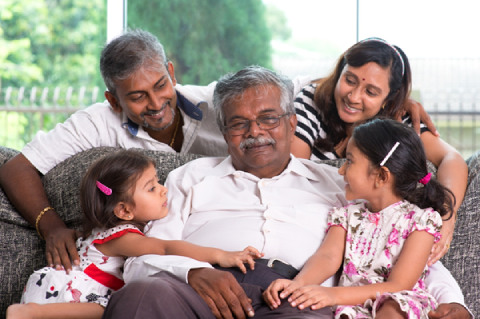Health tips for Elderly during COVID-19

COVID19 has been with us since early 2020, and it has become a part of life for everyone (or most of them at least). We know how to protect ourselves from infection, but after 9 months, what is known as pandemic fatigue has set in for many people. When this happens, we begin to become impatient and frustrated with the conditions we are forced to live with, which leads to unintentional carelessness. This carelessness opens the door for the Coronavirus, and to fall sick now that the vaccines that will protect us from this disease are insight will be tragic. The elderly are most at risk from COVID19 and are also more likely to become forgetful and careless about the precautions they need to take to stay safe. If you are a senior citizen or are caring for an older adult, here is a refresher course on the basics of surviving the pandemic.
Protecting Your Health
- If you are on medication for a non-COVID19 medical conditions, ensure that you stick to the medication schedule. Falling sick due to another medical disorder opens the door for the Coronavirus.
- Going to the chemist for medicines should be avoided. Keep a 30 day supply of your medication on hand and arrange for replenishment when you are down to a 10 day supply.
- If you are prone to minor aches and pains like headaches, body pain, sinusitis, and so on, keep a close watch on your health when any of these conditions occur. If the intensity or speed of recovery is out of the ordinary, get medical help without delay. It could be a sign of something serious developing.
- If you feel the need to go to the hospital, do so. Good hospitals have plans and systems to keep those not suffering from COVID19 safe, so there is no reason to fear getting infected.
Reducing The Risk Of Coronavirus Infections - Continue with all COVID19 precautions such as wearing a mask, frequent hand washing, maintaining social distancing, and so on. After so many months, it is easy to take precautions for granted and let your guard down. This is when you are most vulnerable to infection.
- Clean and disinfect surfaces that you touch frequently or touched by outsiders who enter your home, like maids and other domestic helpers.
- Avoid going out unless it is necessary.
- Staying home does not mean that you do not exercise at all. Staying fit and active is one of the best protection from infection. If you have an exercise regimen, stay with it; if you live in an apartment with no open area to walk in, walk indoors. It may not be as lovely as being outdoors, but the exercise is essential for your continued good health.
- If you have not been in the habit of exercising regularly, now is the time to start, unless there are medical reasons not to. Ask your doctor for advice on what exercise is right for you.
- Being at home does not mean being bored. Boredom is bad in itself, but what is worse is that it can lead to depression, and that could cause you to become careless about your health and wellbeing. Read, watch TV, use social media to stay in touch with family and friends, or use the phone.
- When you go out, ensure that you take all the safety precautions that have been so well-publicized. If others are not wearing masks, keeping a social distance, avoiding touching each other, and so on, this is not a place where you are safe. Explain to the others that your age means that you are most at risk of infection and leave.
Uncertainty Is Dangerous
As our time living with COVID19 progress, there will be new situations where you may not be sure of what you need to do to protect yourself. In such aces, use your common sense and remember that your focus must be on avoiding infection. If unsure of what to do or how to behave, ask your doctor for advice.
Waiting For Vaccines
COVID19 vaccines should soon be available. While no official release and vaccination plan has yet been released, the elderly will likely be among the first to receive vaccinations. This could still be a matter of months, so be prepared to be patient. And remember that vaccines give you protection, but nothing is ever 100% guaranteed. Even after you are vaccinated, please continue to take precautions against infection, as advised by the Government or your doctor, until the danger is completely gone.
- Dec 21, 2020
